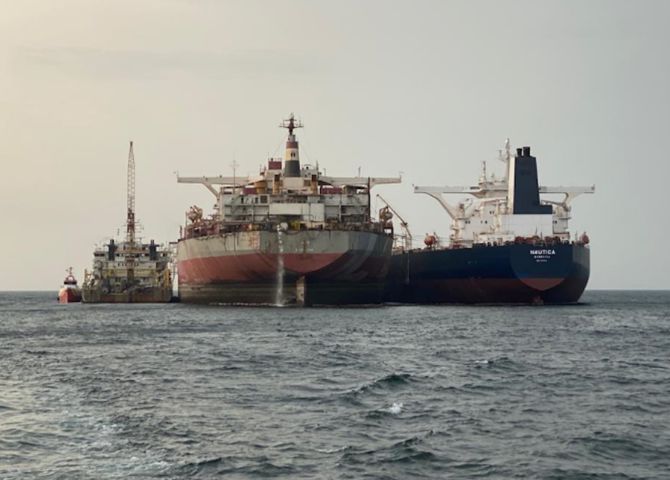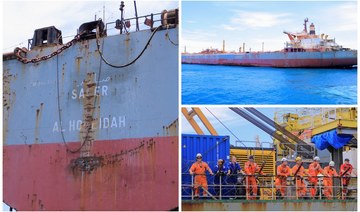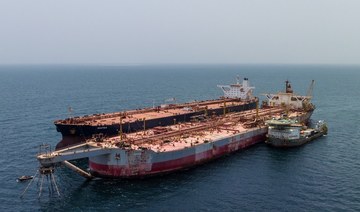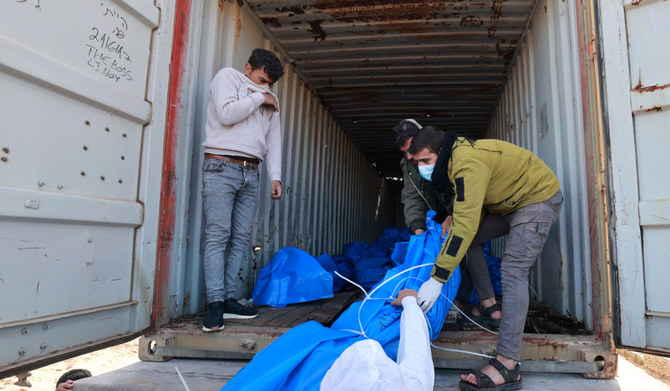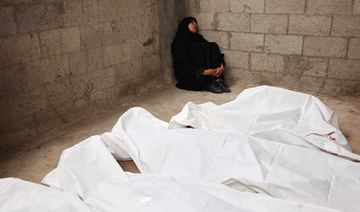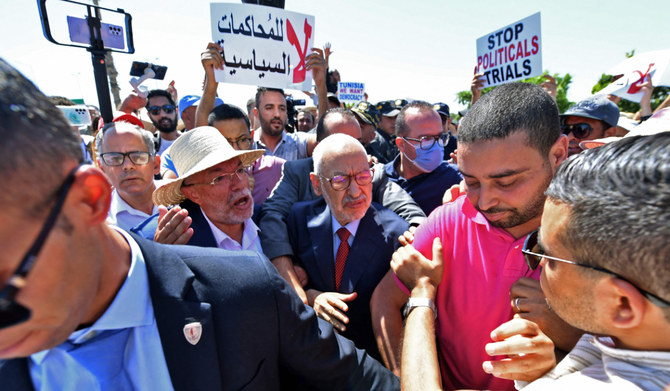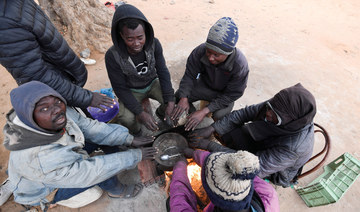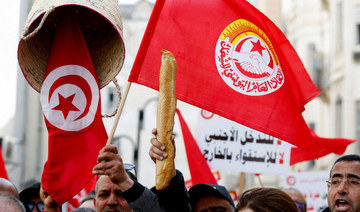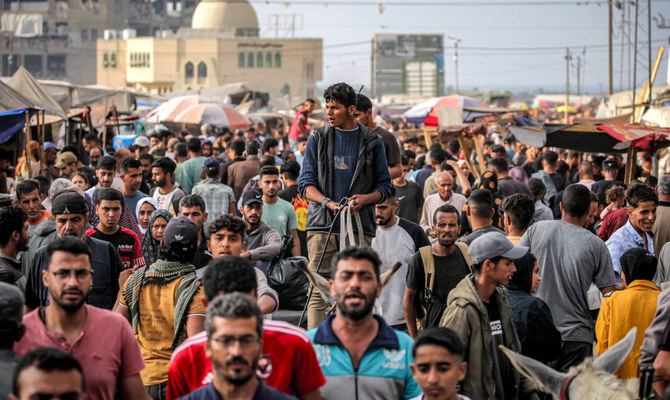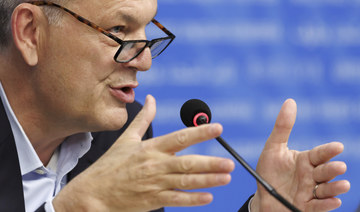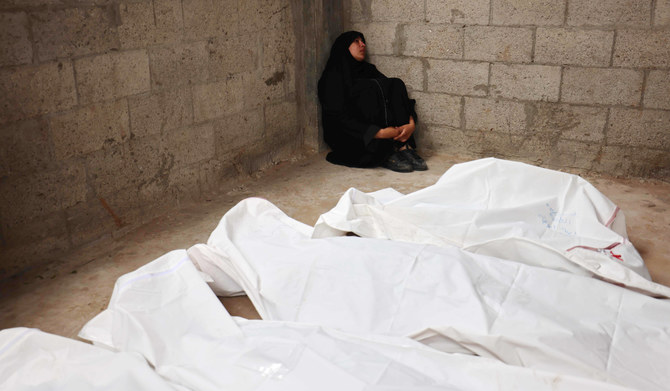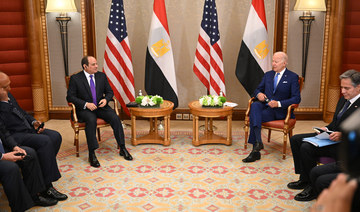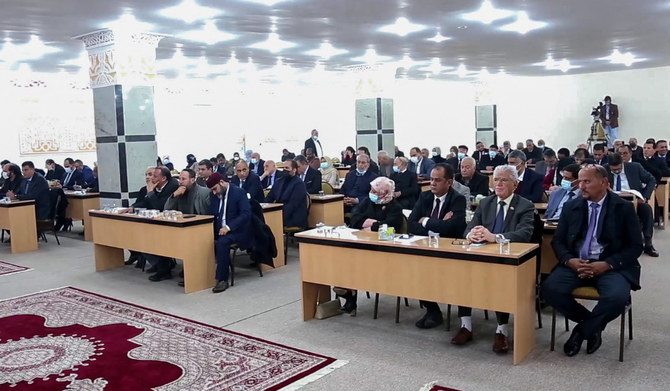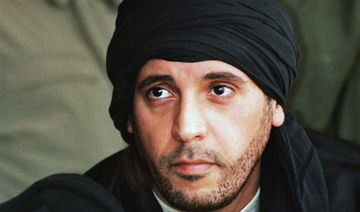DUBAI: The news that the threat of a massive oil spill in the Red Sea has receded with the transfer of more than a million barrels of oil from the FSO Safer, a dilapidated storage vessel lying off the coast of Yemen, has come as a huge relief for nearby countries, UN officials and environmentalists.
After months of on-site preparatory work, the $143 million operation got underway at the end of July, with the goal of defusing what UN Secretary-General Antonio Guterres had described as “the world’s largest ticking time bomb.”
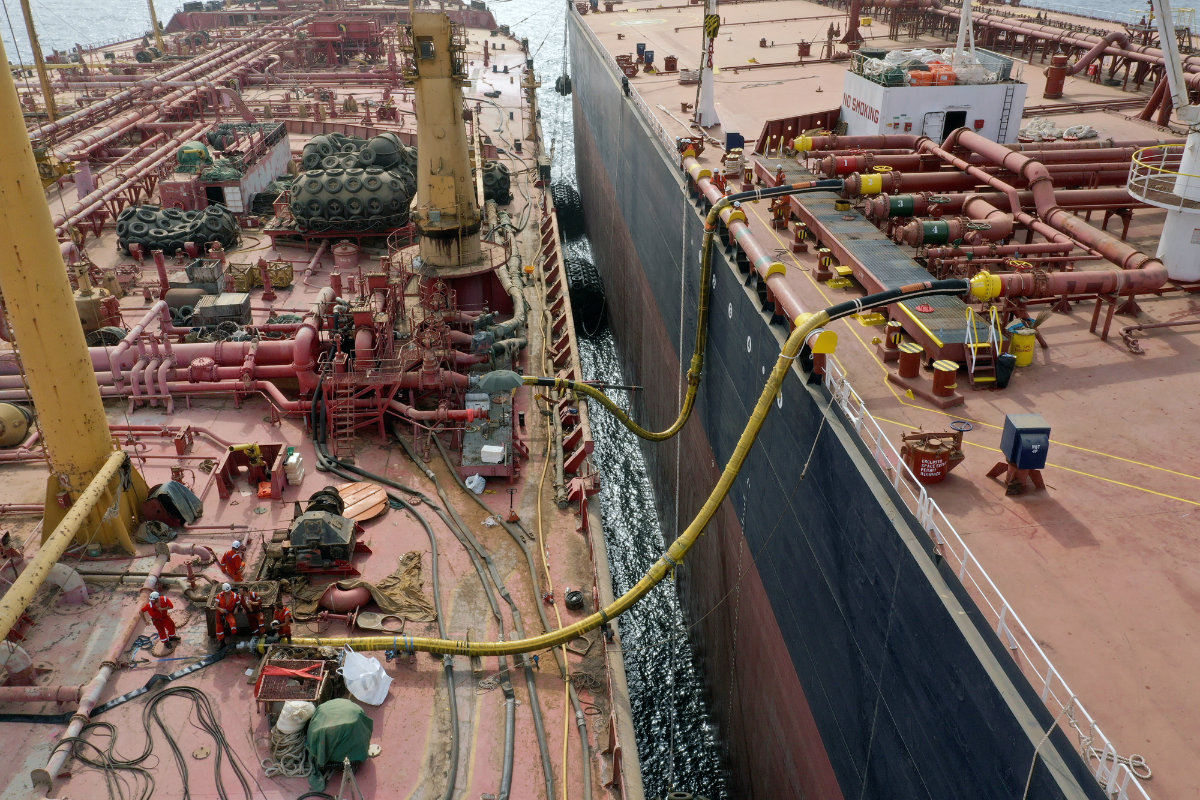
A team of workers hired by the United Nations started transferring oil from the rusting super-tanker FSO Safer off war-torn Yemen on July 25. (AFP/File)
An international team siphoned the crude out of the Safer to another vessel — the Nautica, later renamed the Yemen — bought by the UN for the salvage mission.
In a statement on Friday, Saudi Arabia’s Ministry of Foreign Affairs reiterated the Kingdom’s appreciation for the efforts of Guterres and the UN working team who “worked to harness all efforts to end the problem of the Safer tanker.”
Saudi Arabia was one of the first countries to provide financial grants for the offloading operation through donations via the King Salman Center for Relief and Humanitarian Aid.
The Saudi foreign ministry also thanked the Command of the Coalition to Support Legitimacy in Yemen for “facilitating the operational plan process until the ... completion of the unloading of the floating tanker Safer.”
Had the condition of the Safer been allowed to deteriorate further, massive quantities of oil could have spilled into the Red Sea, causing incalculable environmental and economic damage.
“Thank God, it is over,” Walid Khadduri, an oil analyst and former editor-in-chief of the Middle East Economic Survey, told Arab News from Beirut. “The UN working team prevented a veritable catastrophe from happening. It could have been a major one.”
The Red Sea and its “distinct ecosystem,” with coral reefs and seagrass beds, would have been most at risk, he said.
“The environment would have been the hardest hit by an oil spill, followed by maritime traffic.”
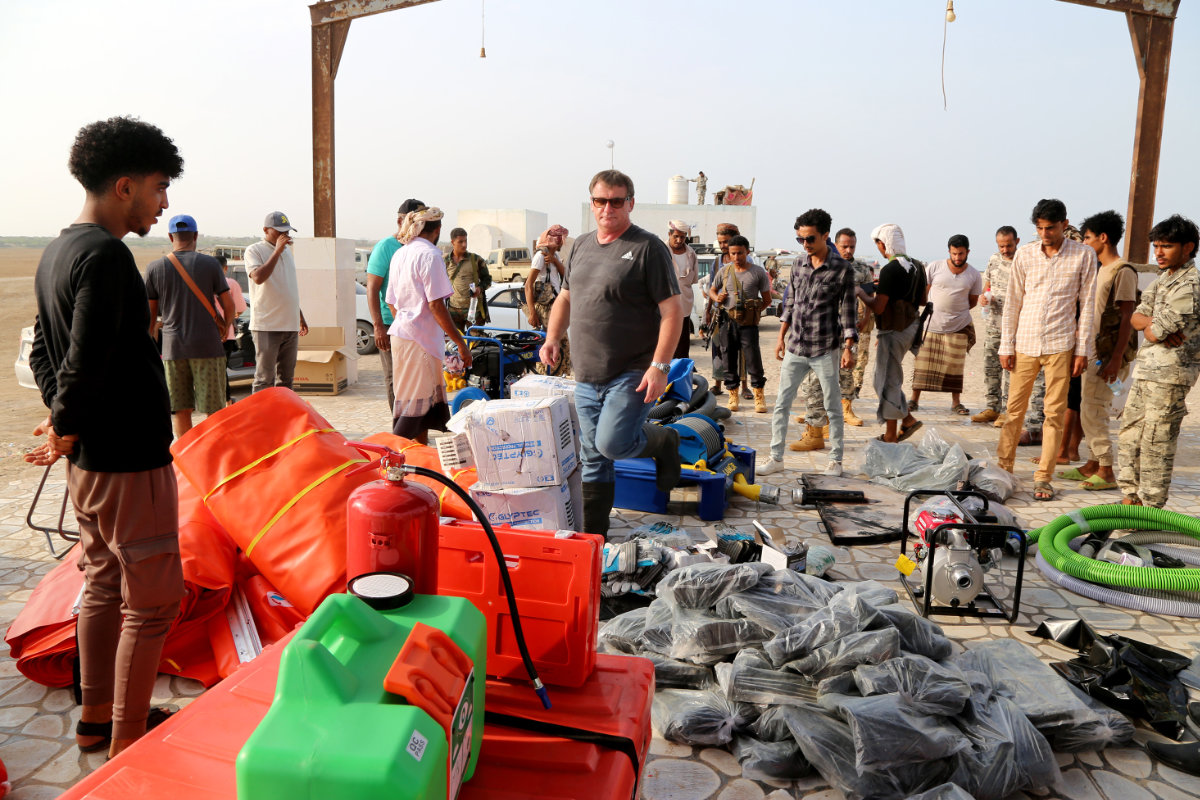
Anticipating the possibility of a spill in the course of the oil transfer operation, the United Nations traineda local team in Hodeidah on the use of floating booms (temporary barrier) to protect the coast. (AFP/file photo)
Now that most of the oil has been transferred from the Safer, saving Red Sea ecosystems and fishing communities up and down the Yemen coast from potential disaster, a UN-purchased vessel will tow the Safer to a “green scrapping yard.”
Achim Steiner, administrator of the UN’s Development Program, described the offloading operation as “one of the most significant preventative actions taken in recent years.”
He said: “Some of you have written and called the FSO Safer a ticking time bomb. I think it is fair to say that as of today, that ticking is no longer an immediate threat.”
The Safer, a 47-year-old floating oil storage vessel, was moored in the Red Sea, north of the Yemeni ports of Hodeidah and Ras Issa — a strategic area controlled by the Houthi militia.

It was built in the 1970s and later sold to the Yemeni government to hold up to 3 million barrels of crude oil pumped from the fields of Marib, a province in eastern Yemen.
The vessel was 1,181 feet long with 34 storage tanks, and held more than 1.14 million barrels of oil before the UN operation began — four times as much as was spilled in the 1989 Exxon Valdez disaster off Alaska, one of the world’s worst ecological crises, according to the UN.
Minimal maintenance since Yemen’s civil war began in 2015 left the Safer vulnerable to corrosion and increased the risk of leaks.
ALSO READ:
• FSO Safer tanker disaster could leave Suez Canal unpassable: Greenpeace
• ‘A ticking time bomb’: how FSO Safer became a ‘bargaining tool’ for Houthis
• How the FSO Safer is an impending danger to the Red Sea and Yemen
• UN chief urges Yemen’s Houthis to grant access to decaying oil tanker
The removal of oil was the culmination of almost two years of political groundwork, fundraising and project development.
Donations to fund the offloading operation from 23 UN member states, the EU, the private sector and public groups have exceeded $121 million, but a further $20 million is needed to scrap the Safer and remove any remaining ecological threats to the Red Sea.
Hasan Selim Ozertem, a security and energy analyst, described the UN operation as a “critical intervention to prevent an ecological disaster,” adding that “it is not possible to totally eliminate the risk of oil spill as witnessed from so many disasters in the past.”
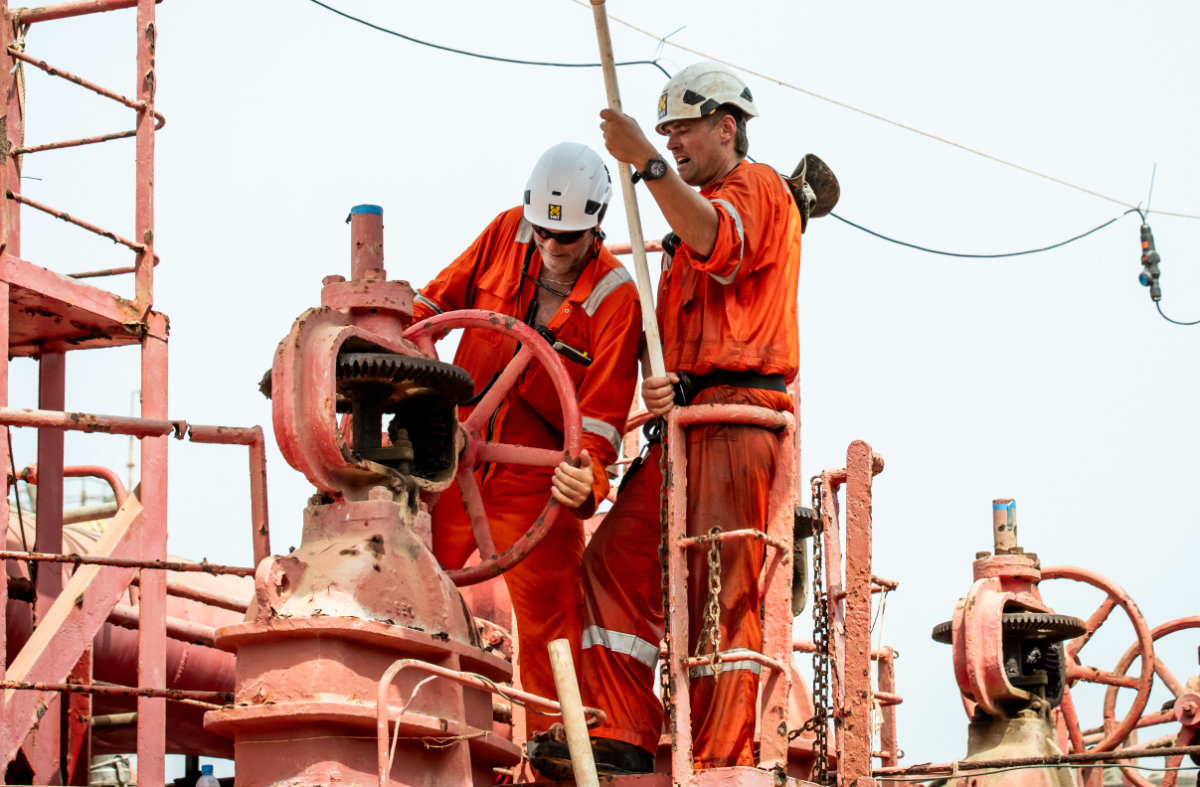
In this photo supplied by international dredging and heavylift company Boskalis, workers are shown pumping oil from from the FSO Safer to a replacement tanker in July 2023. (Boskalis photo)
He told Arab News from Ankara that it is important to note that the international community, represented by the UNDP, supported the oil removal operation.
“This experience holds lessons on how to avert such situations in the future. Considering how complicated the Yemen situation is, no mission should be treated as impossible.
“Be it the Syrian war or the Israel-Palestine conflict, every crisis requires political will on the part of regional actors to reach a solution. The UN by itself does not have the necessary carrots and sticks to impose solutions; it can only facilitate the process.”
FASTFACTS
FSO Safer was moored off coast of Yemen with minimal maintenance.
Vessel held 4x as much oil as was spilled in 1989 Exxon Valdez disaster.
Saudi Arabia provided financial grants for the offloading operation.
In comments to the media on Friday, David Gressly, the UN’s resident coordinator in Yemen, highlighted that the two captains involved in the operation on board the Safer were invited to travel from Aden to take part in the project, which he described as “an indication of the importance of going beyond the day-to-day concerns that exist in the civil war that continues here.”
He said the success of the salvage mission, at a regional level, has lifted the spirits of the Yemeni people, and expressed hope that the ability of adversaries to work together to address one critical problem might lay the groundwork for broader cooperation and peace negotiations.
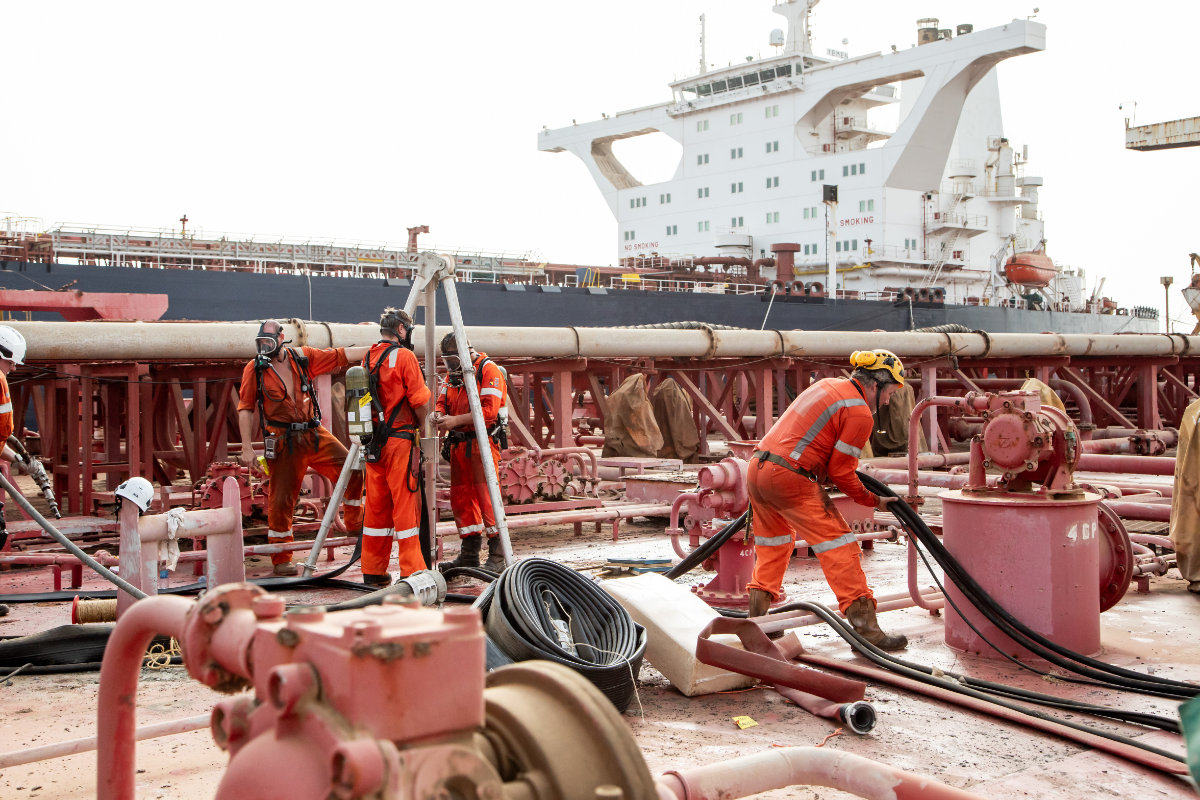
In this photo supplied by international dredging and heavylift company Boskalis, workers are shown pumping oil from from the FSO Safer to a replacement tanker in July 2023. (Boskalis photo)
The success of the offloading operation serves as a testament to the power of diplomacy, patience and transparency in efforts to foster collaboration in even the most challenging of situations, he added.
“It’s a good Friday,” Gressly told Arab News. “We feel good about what we’ve seen today. It’s nice to see something advancing as it did here. In terms of the larger political dialogue, of course, it won’t contribute directly to that. But I have to say (it) does create a bit of hope for people that there is a way forward.
“And, then, while the parties are adversaries, they did find a way to set aside those differences long enough to deal with this particular problem. And that can create, I think, conditions more conducive for negotiations.
“And also, I think the fact that the (memorandum of understanding) that was signed back in March last year, that so far has been adhered to by Sana’a. is a good sign that you can have a successful negotiation in this context.
“That does not guarantee it but it does create a sense of hope that may not have been there before. And I hope those that are in a position to do so can take advantage of whatever momentum this is creating to go forth.”
Likewise, UNDP’s Steiner said that in the broader context of the humanitarian situation in Yemen, the success of the Safer operation offers “a glimpse of hope,” especially amid wider shifts in the dynamics of the region and within Yemen itself.
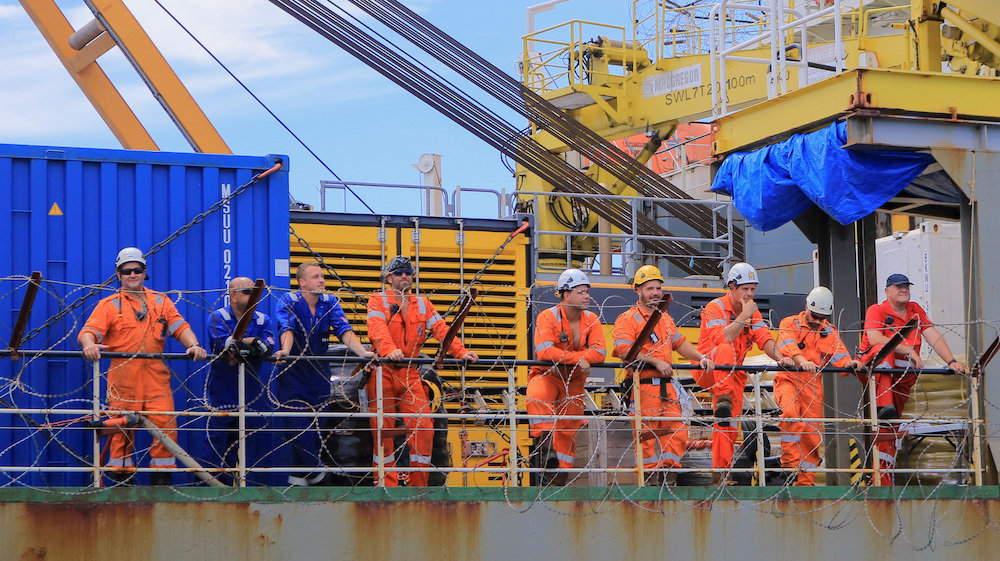
Staff of a vessel in charge of unloading oil from the decaying vessel FSO Safer are pictured off the coast of Ras Issa, Yemen. (AFP)
“UNDP, which works in virtually all parts of the country, has estimated that Yemen over the last eight years has lost some 20 to 22 years of its development,” he told Arab News. “So, I think the context within which this operation had to be mounted was quite unique.
“But I think one can at least speculate that the ability of two sides to this conflict — who lack trust in each other, who are even very skeptical toward international community — to find it within themselves, and ultimately with a very strong sense of support from the public, that this was an operation that was of benefit to every citizen, and therefore required exceptional and unusual measures.
“And the story of how we got here might actually give some hope to those who believe that there is more that can be achieved in the next few months.”
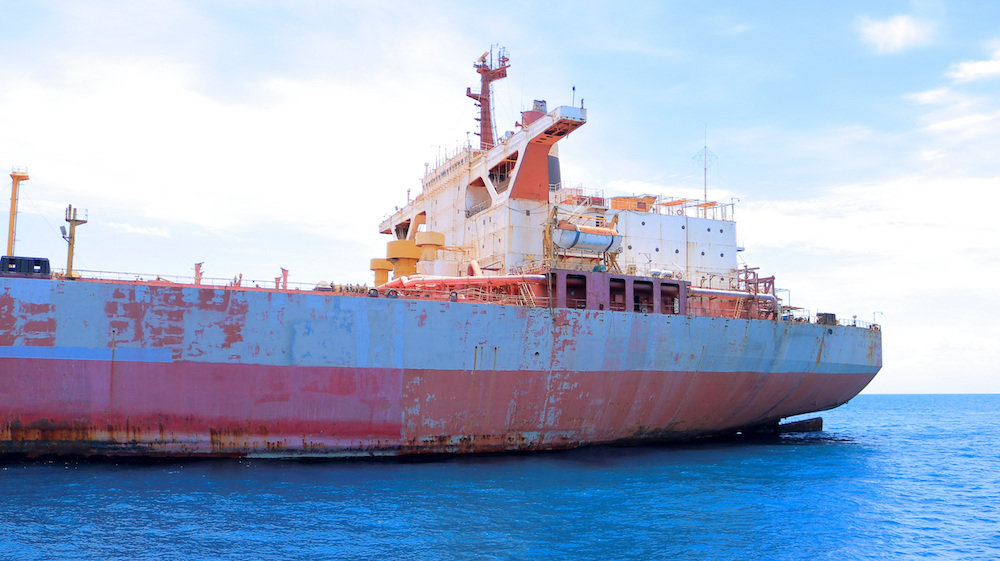
After the remaining oil on board the FSO Safer is removed, the decaying vessel will be towed to a scrapyard, an operation expected to be completed in up to 10 days. (AFP photo/File)
Although the bulk of the oil has been removed from the Safer, the offloading operation is not yet complete; there is a small amount of viscous oil remains on board and the vessel could still break apart.
“The residual oil on the Safer is mixed with sediment and can’t be pumped out at this point,” Gressly said. “It will be removed during the final cleaning.”
The second and final phase of the operation, stripping and cleaning the Safer and preparing it for towing and scrapping, is expected to take between a week and 10 days to complete.
— Ephrem Kossaify contributed to the report from New York City





